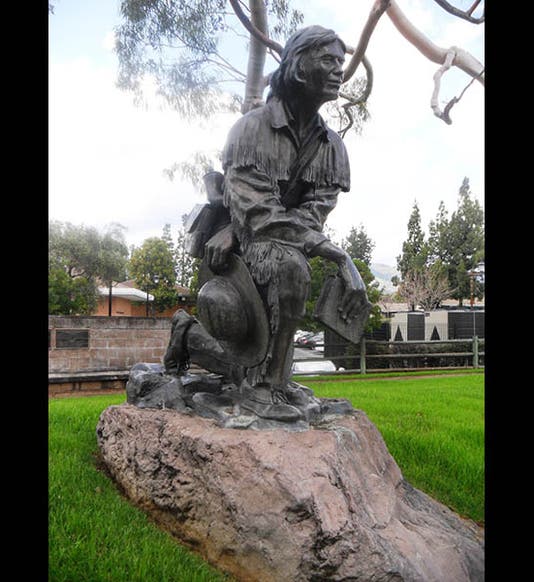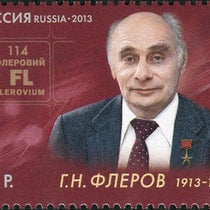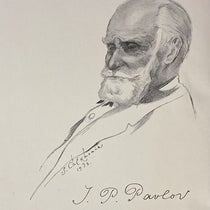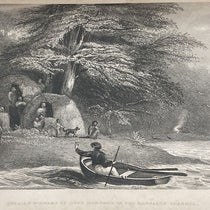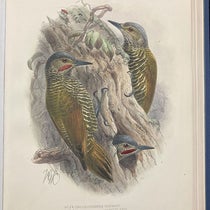Scientist of the Day - Jedediah Smith
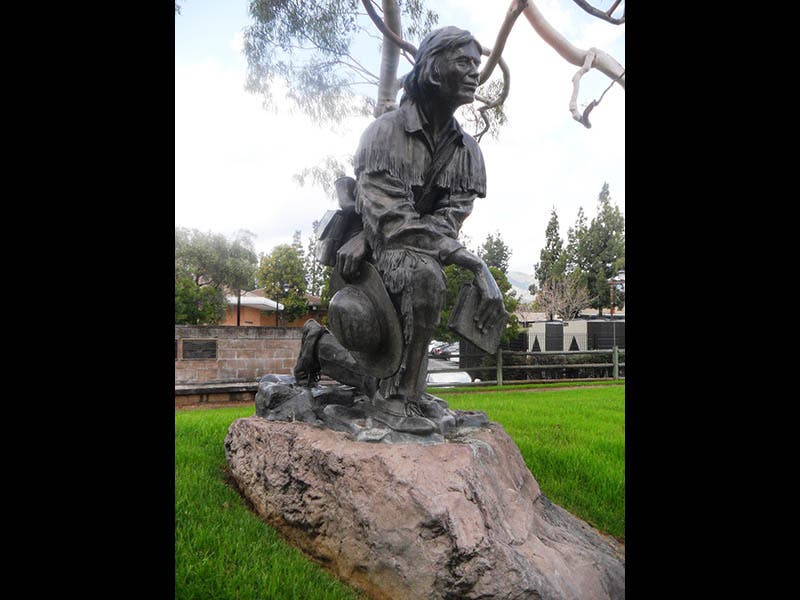
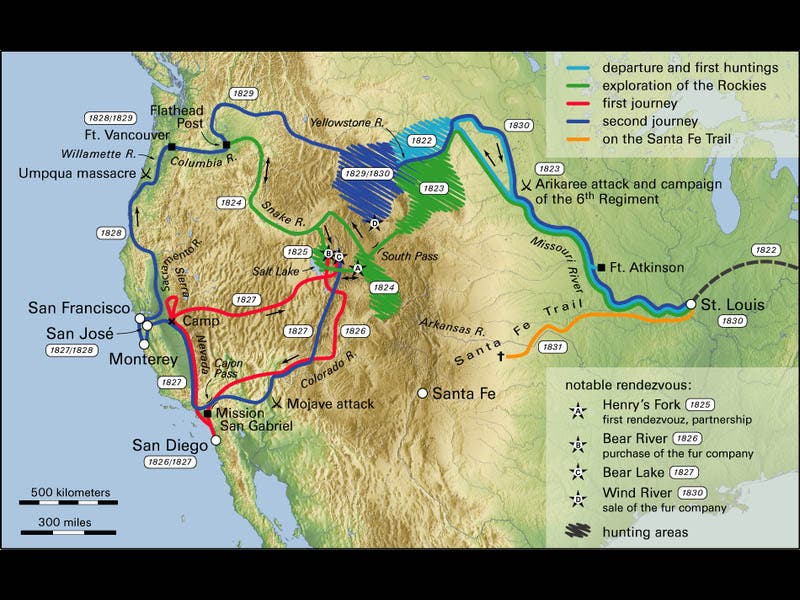
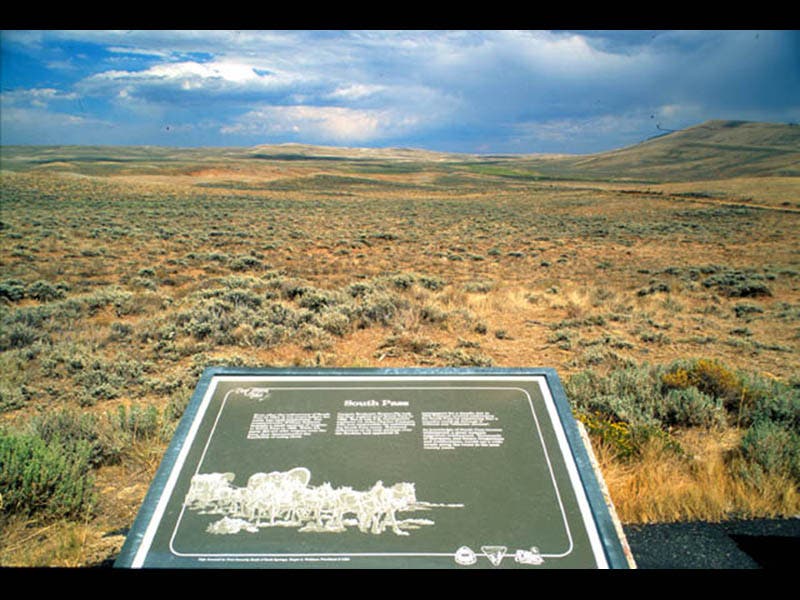
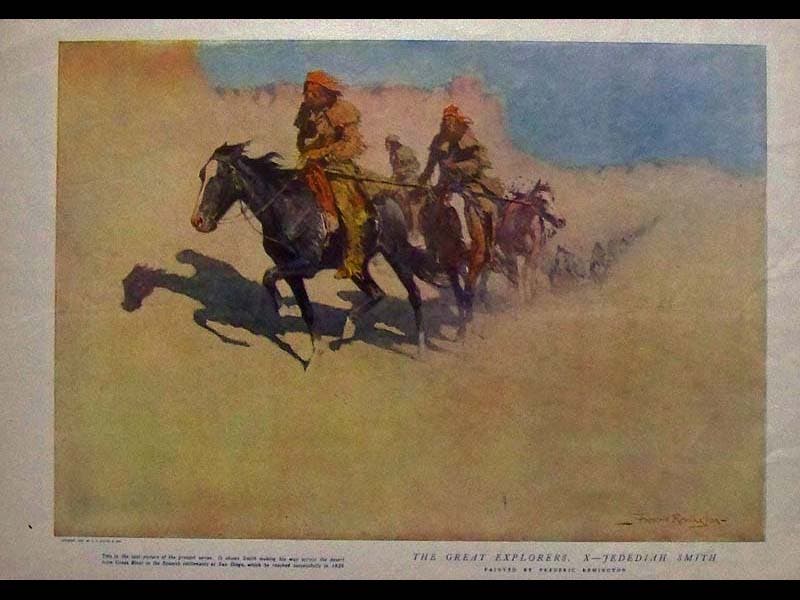
Jedediah Smith, the first of the legendary Mountain Men of the American West, died May 27, 1831. The Mountain Men were primarily trappers and not explorers or naturalists, but Smith deserves mention here because he was the first person who was not a Native American to make it overland to California, first via the Mohave Desert route (1826) and then again across the Sierras (1827); he also journeyed up the California coast to Oregon (1828), and it was Smith who rediscovered the South Pass through the northern Rockies (1824; see third image above), which had been discovered once before and then lost from memory; this would become the primary mountain-crossing avenue for the Oregon Trail. Smith made a map of his travels; the map no longer survives, but it was apparently the basis for several other maps of the 1830s and 1840s, until replaced by the great survey maps of the 1850s. Smith survived three of the four Indian massacres he encountered, and even withstood the attack of a grizzly bear, which left him with a long scar on his face and a re-attached ear. A modern map of Smith's travels is quite impressive (second image). On this map, you will see a little black cross about halfway down the Santa Fe Trail. This is where Smith was attacked and killed by Plains Indians on this day in 1831; he was 32 years old. He has no grave, no monument, and only one statue that we know of, in San Dimas, Ca. (first image). We have done a much better job of remembering and commemorating his successor, Jim Bridger, who has statues all over the West, including one right here in Westport in Kansas City. Dr. William B. Ashworth, Jr., Consultant for the History of Science, Linda Hall Library and Associate Professor, Department of History, University of Missouri-Kansas City. Comments or corrections are welcome; please direct to ashworthw@umkc.edu.

